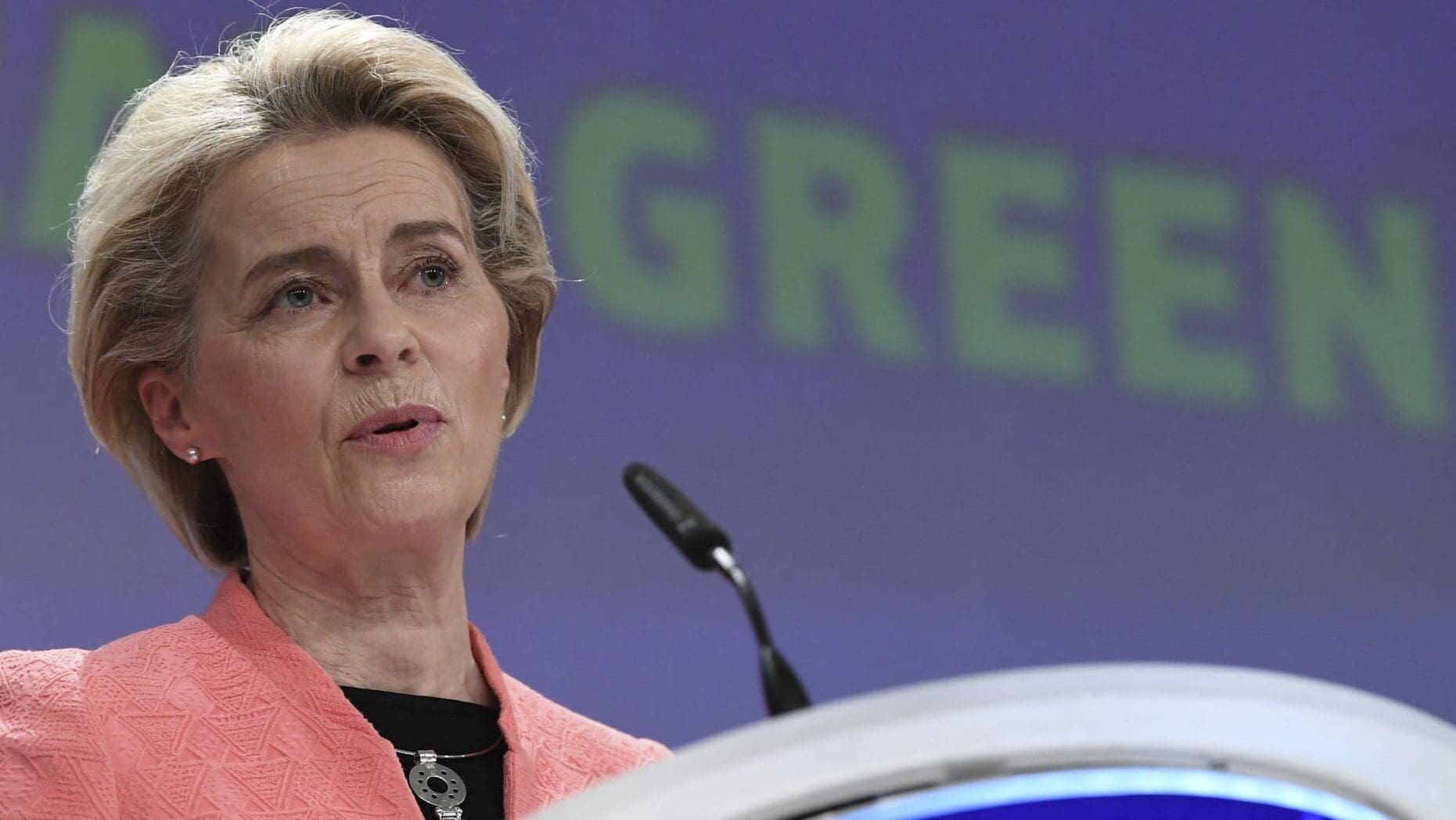
Commission President Ursula von der Leyen
Photo: John Thys / AFP
Brussels might look a lot different by the end of this month. The European Parliament (EP) will have reconvened to elect its new leadership, the parties and factions will have finished reshuffling and new groups (if any) forged, and an absolute majority in the 720-seat house will confirm Ursula von der Leyen’s second term. Or not,—that last bit is far from certain.
Von der Leyen’s grand coalition—made up of the centrist European People’s Party (EPP), the social democrat S&D, and the liberal Renew—theoretically has the numbers to carry the vote. However, von der Leyen needs 361 votes and her coalition has 399 MEPs in total, meaning that the Commission chief knows she will need a bit of extra support. Statistically, the secret ballot ensures that there is always at least a 10% defection rate within the coalition, and this year it may be much higher.
This means von der Leyen needs to muster a few allies from the two groups flanking her centrist coalition, either the Greens or Giorgia Meloni’s European Conservative and Reformists (ECR). These alliances are mutually exclusive, of course, and she must also take care not to offend her own coalition members by dealing with outsiders.
For Antonio Tajani—Italy’s deputy PM and foreign minister, representing the center-right Forza Italia in Meloni’s government, but who is also a vice-president of von der Leyen’s EPP—the choice is obvious. ECR is the third largest group in the parliament (at least for now) and Meloni gained unprecedented democratic legitimacy during the election. In contrast, Green support has dwindled and declined.
Winning the vote of Meloni’s giant Fratelli d’Italia—or by proxy, nearly all of ECR—is the only sure way to safely secure von der Leyen’s second term, Tajani said in an interview with Italian Media on Monday, July 1st.
There is little doubt von der Leyen would “pass the vote, but she will be forced to open to the conservatives and I believe she will do so,” Tajani said. “Until the 18th, I will work towards this. We need to open up to the [ECR], led by Meloni, if we want to ensure that von der Leyen gets the votes. For the sake of stability, it is important that the supporting majority is broad and certain.”
The price of that support, of course, is essentially the same as it was last week. During Council negotiations then, Meloni refused to endorse von der Leyen. A Commission vice-presidency and an influential portfolio would be enough to sway Meloni, Tajani said, adding that Italy deserved these without even having to bargain for them.
“I protested at the EPP meeting [before the summit] for more attention to be paid to [Italy’s] requests,” the foreign minister said, believing that Italy “has the right to an important position” in the next college of commissioners and that “it cannot be without an important commissioner and vice-president.”
Others in the ECR would not necessarily benefit from any of this, but they, too, could be persuaded by granting the group at least two vice-presidential EP positions (out of 14 available) and other influential parliamentary posts.
Alas, von der Leyen appears to entertain a possible alliance with the Greens instead, despite them having only 54 seats as opposed to the ECR’s 83, simply because such a deal would sit better with her socialist and liberal partners—although not the European voters.
On the same day the Tajani interview was published, von der Leyen met with the leaders of the Greens for a “constructive” meeting, no doubt discussing the possibility (and the price) of their support during the vote. And from the look of it, the Commission chief is ready to pledge more Net Zero and green shenanigans, even if that was the last thing her party and her voters wanted.
“To protect the Green Deal & strengthen Europe’s competitiveness, to protect our democracy and human rights, we must work together & build a stable and democratic majority in the EU Parliament,” the Green’s co-leader, Terry Reintke wrote on X after meeting von der Leyen.
“Europe is strongest united. We are ready” she added, hinting at a provisional agreement at least.
The group’s other co-president, Bas Eickhout said in a press release that they were discussing ways to find a “stable, democratic majority,” but warned that the Greens won’t be part of one that “negotiates with or relies on the far-right, including ECR.”
The problem is that even if von der Leyen and many in the EPP do not necessarily share these anti-ECR sentiments, the majority in the S&D and Renew do, forcing the Commission chief’s hand. In fact, every group left of EPP signed a declaration in May vowing to never collaborate with anyone to the right of EPP.
Anything can happen between now and July 16th, of course. But it does seem like Meloni and her conservatives—the biggest winners of the EU elections—will be ignored and sidelined again, while the greatest losers, the Greens, will be able to ensure that the EU’s destructive climate policies, protested by an entire continent, stay on the agenda.
